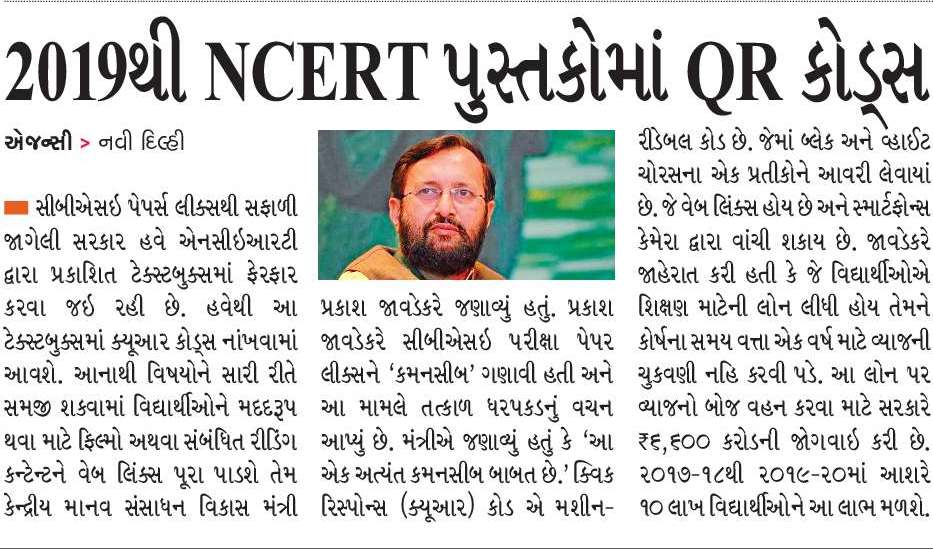| Advertisement |
The National Council of Educational Research and Training (NCERT) is an autonomous organisation set up in 1961 by the Government of India to assist and advise the Central and State Governments on policies and programmes for qualitative improvement in school education. The major objectives of NCERT and its constituent units are to: undertake, promote and coordinate research in areas related to school education; prepare and publish model textbooks, supplementary material, newsletters, journals and develops educational kits, multimedia digital materials, etc. organise pre-service and in-service training of teachers; develop and disseminate innovative educational techniques and practices;collaborate and network with state educational departments, universities, NGOs and other educational institutions; act as a clearing house for ideas and information in matters related to school education; and act as a nodal agency for achieving the goals of Universalisation of Elementary Education. In addition to research, development, training, extension, publication and dissemination activities, NCERT is an implementation agency for bilateral cultural exchange programmes with other countries in the field of school education. The NCERT also interacts and works in collaboration with the international organisations, visiting foreign delegations and offers various training facilities to educational personnel from developing countries. The major constituent units of NCERT which are located in different regions of the country are:
NCERT published textbooks would have QR codes from next year (2019-20) which will help students to understand chapters better by watching a film or reading additional content on laptops and digital boards, Union minister Prakash Javadekar said today.
Quick Response (QR) Code is a machine-readable code consisting of an array of black and white squares, typically used for storing web-links or other information for reading by the camera on a smart-phone.
The government has made a provision of Rs 6,600 crore for bearing the interest component on education loans, he told reporters.
The moratorium will be for the course period plus 1 year, he said.
Nearly 10 lakh students would avail the benefits from 2017-18 to 2019-20, with the government bearing about Rs 2,200 crore per year towards interest costs on education loans, the minister said.
NCERT published textbooks would have QR codes from next year (2019-20) which will help students to understand chapters better by watching a film or reading additional content on laptops and digital boards, Union minister Prakash Javadekar said today.
Quick Response (QR) Code is a machine-readable code consisting of an array of black and white squares, typically used for storing web-links or other information for reading by the camera on a smart-phone.
The government has made a provision of Rs 6,600 crore for bearing the interest component on education loans, he told reporters.
The moratorium will be for the course period plus 1 year, he said.
Nearly 10 lakh students would avail the benefits from 2017-18 to 2019-20, with the government bearing about Rs 2,200 crore per year towards interest costs on education loans, the minister said.

0 टिप्पणियाँ: